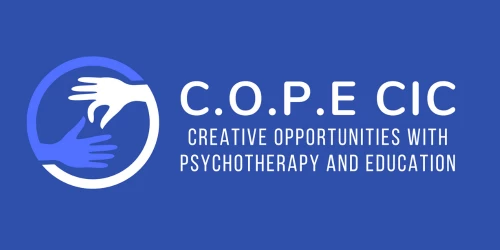The Crucial Link: Connections and Mental Health
In today's fast-paced world, it's easy to get caught up in the hustle and bustle of life, often neglecting one of the most vital aspects of our well-being – our connections with others. The importance of connections for mental health cannot be overstated. These bonds, whether they are with family, friends, or even acquaintances, play a pivotal role in shaping our emotional and psychological well-being. In this blog, we will delve into the profound impact that connections have on mental health and why nurturing them should be a priority.
Social Support Acts as a Buffer
Life is filled with ups and downs, and during those tough times, having a strong support system can be a lifeline. Your connections are like a safety net that can catch you when you fall. Whether you're dealing with stress, anxiety, or depression, having someone to lean on can significantly alleviate the emotional burden. Sharing your thoughts and feelings with someone who cares can provide a sense of relief, making the challenges you face seem more manageable.
2. Loneliness Can Be Harmful
Conversely, the absence of meaningful connections can be detrimental to mental health. Loneliness, often described as a silent epidemic, can lead to a host of mental health issues, including depression, anxiety, and even cognitive decline. Humans are inherently social creatures, and when we lack connection, it can trigger feelings of isolation and despair. Building and maintaining connections can be a powerful antidote to loneliness, offering a sense of belonging and purpose.
3. Boosting Self-Esteem and Confidence
Positive connections have the remarkable ability to boost our self-esteem and confidence. When you surround yourself with people who appreciate and support you, it reinforces your self-worth. These connections can serve as mirrors, reflecting back the best parts of yourself. As a result, you start to believe in your abilities and value as a person. This self-assuredness can be a strong protective factor against mental health issues like anxiety and depression.
4. A Source of Joy and Fulfilment
Joy and fulfilment in life are often found in our connections with others. Celebrating achievements, sharing experiences, and creating memories with loved ones can be incredibly gratifying. These positive emotions contribute to an overall sense of well-being, reducing the risk of falling into the depths of mental health challenges.
5. Encouraging Open Communication
Healthy connections foster open communication. When you have someone you trust and feel comfortable talking to, it becomes easier to express your thoughts and emotions. This can be especially beneficial when dealing with issues that might otherwise stay bottled up, intensifying the strain on your mental health. Open communication allows for the release of pent-up emotions and can lead to problem-solving and emotional growth.
6. A Diverse Network Broadens Perspectives
Diverse connections can broaden your perspectives and enrich your life. Interacting with people from different backgrounds, cultures, and experiences can challenge your assumptions and open your mind to new ways of thinking. This intellectual stimulation not only keeps your mind sharp but can also enhance your mental resilience.
In conclusion, the importance of connections for mental health cannot be overstated. These relationships are the foundation upon which our emotional well-being is built. Whether you're going through tough times or simply seeking to maintain your mental health, nurturing your connections should be a top priority. It's not just about having someone to share life's joys and sorrows with; it's about creating a robust support system that can help you navigate the complexities of life and emerge stronger on the other side. So, reach out, connect, and invest in your mental health through the power of human connection.

